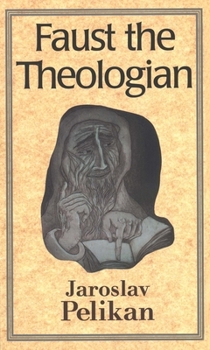Faust the Theologian
Select Format
Select Condition 
Book Overview
In this erudite and beautifully written book, an eminent scholar meditates on the theological implications of Goethe's Faust. Jaroslav Pelikan reflects on Goethe's statement that he was a pantheist when it came to science, a polytheist in art, and
Format:Paperback
Language:English
ISBN:0300070640
ISBN13:9780300070644
Release Date:January 1997
Publisher:Yale University Press
Length:158 Pages
Weight:0.55 lbs.
Dimensions:0.5" x 5.5" x 9.2"
Customer Reviews
1 rating
FASCINATING AND ORIGINAL
Published by Thriftbooks.com User , 25 years ago
This book is a beautifully written masterpiece, detailing the theological implications of Goethe's Faust. The book offers reflections on Goethe's statement that he was a pantheist when it came to science, a polytheist in art and a monotheist in ethics. For the first time, the author uses this statement in the analysis of Faust's development as a theologian, showing this masterpiece in a surprising and totally original way. The analysis begins with a discussion on Faust's role as a natural scientist or pantheist. Faust's mistrust of traditional knowledge is examined and his interests in geology, oceanography and optics are considered. The analysis also includes his perception of nature as a realm inspirited throughout by a single, unifying Power. After the analysis in concluded, the author follows Faust on his journeys to the two Walpurgis Nights. It is here that Faust delights in the polytheistic extravaganzas of Germanic and most especially Greek mythology. In conclusion, the author describes the operatic finale of the book, when Faust's spirit in drawn upward to salvation by the Eternal Feminine. This event marks Faust's evolution into moral philosopher and monotheist. This analysis reveals thematic unities and a dialectical development of Faust's characters that has gone unnoticed until now.





